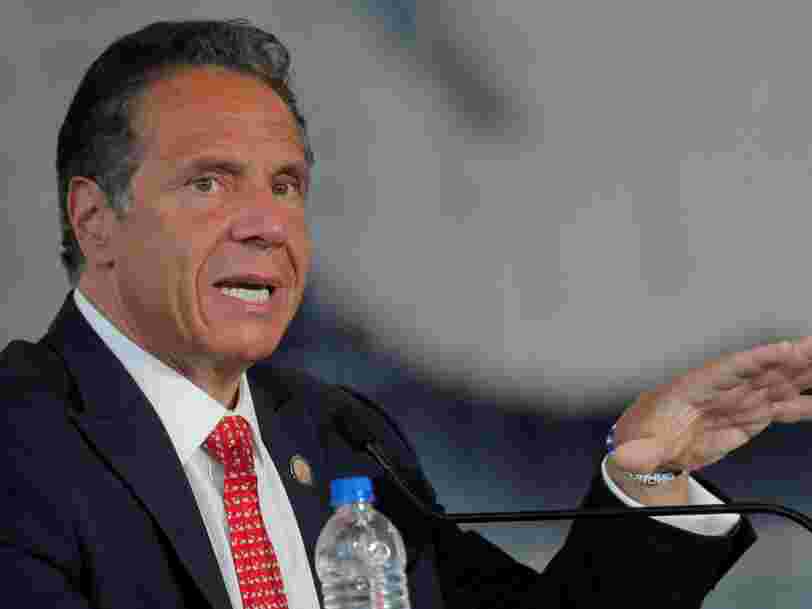Andrew Cuomo

The ruling was in favor of the Catholic Diocese of Brooklyn and Orthodox Jewish synagogues, who claimed to be unfairly singled out by the guidelines.
- The Supreme Court blocked some COVID-19 restrictions on religious services in New York state.
- The 5-4 ruling was in favor of the Catholic Diocese of Brooklyn and Orthodox Jewish synagogues, who said they were being unfairly singled out by the rules.
- Governor Cuomo said that the ruling was "irrelevant...an opportunity for the court to express its philosophy and politics."
- Visit Business Insider's homepage for more stories .
New York Gov. Andrew Cuomo called a Wednesday Supreme Court ruling "irrelevant," Reuters reported.
The Supreme Court ruled 5-4 against New York state COVID-19 restrictions that limited attendance at religious services in places with extreme COVID-19 outbreaks, designated red or orange zones.
Cuomo told reporters on a call Thursday that the decision would not impact New York's rules, because the area in the case was no longer considered to be a red zone.
"It's irrelevant from any practical impact because the zone that they were talking about has already been moot," he said.
The case was brought by the Catholic Diocese of Brooklyn and two Orthodox Jewish synagogues who said they were being unfairly singled out by the rules, according to Reuters.
The case was based on an October decision by Cuomo to shut down non-essential businesses in areas with severe outbreaks. The state divides areas into yellow, orange, and red based on severity of coronavirus infections, and religious services in red zones were limited to 25% capacity, or ten people. The diocese said that it was being singled out over other businesses in the same zone.
"I think this was really just an opportunity for the court to express its philosophy and politics," Cuomo said about the decision, made by the court's conservative majority. Chief Justice John Roberts joined liberal justices in dissenting .
Roberts wrote that the rules seemed "unduly restrictive," but he also noted that he believed relieving religious services from the order was unnecessary, as the rules were no longer in place.
New Justice Amy Coney Barrett joined the conservative majority, allowing the court to rule differently on the matter than it had earlier when Justice Ginsburg was on the bench.
Inscrivez-vous gratuitement à notre newsletter quotidienne
Via PakApNews